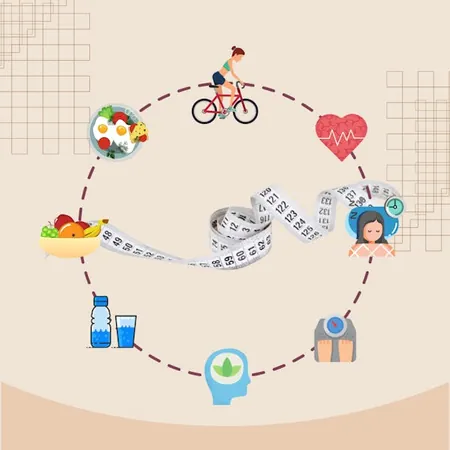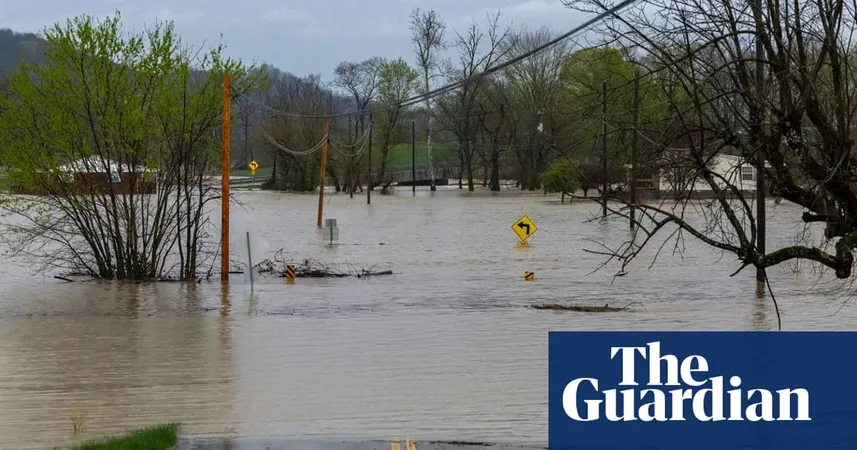
Ontario Auditor General Unveils Startling Shortcomings in Child Mental Health Services and Water Quality Oversight
2025-03-31
Author: Amelia
Crisis in Children’s Mental Health Services
One of the first significant policy changes made by Premier Doug Ford in 2018 was moving the responsibility for children's mental health services from the Ministry of Children, Community and Social Services to the Ministry of Health (MOH). However, Spence's report unveils that despite this shift, oversight is still fragmented between MOH and Ontario Health, resulting in ineffective management of resources.
The auditor revealed that the MOH lacks robust processes for funding allocation and overseeing critical mental health services provided by over 220 organizations—services that include counseling, therapy, and intensive treatment for children and youth. In fiscal year 2023-2024 alone, the MOH allocated more than $530 million to these providers.
However, the report indicates alarming deficiencies: services were often not delivered in a timely or equitable manner, and funding did not correspond with the pressing needs of communities across Ontario—especially in areas with the highest demand for mental health support. What's worse, the MOH has failed to measure or publicly report on the effectiveness and outcomes of these vital services.
Responding to the findings, the Ministry has pledged to implement all 22 recommendations outlined in the report as a means to address these critical issues.
Water Quality: A Hidden Crisis?
Turning to drinking water safety, the government claims that over 98% of samples from non-municipal drinking-water systems meet provincial quality standards. However, the auditor’s report casts doubt on this figure, revealing that not all non-municipal water sources are tested. Private wells and intakes, classified outside of drinking-water systems, are particularly concerning as they lack any testing requirements.
The report highlights the deficiencies in oversight by the Ministry of the Environment, Conservation and Parks (MECP) and MOH. The two ministries do not collectively maintain effective systems to monitor all non-municipal drinking-water sources. Inspections occur infrequently, and compliance with existing regulations is not ensured, creating potential health risks for communities relying on these water sources.
Moreover, the report states that these ministries have not adequately informed users of private wells about the need for regular testing and the associated risks of untreated water. Alarmingly, MECP doesn't have complete or accurate data on private wells, hindering any potential interventions.
The findings have prompted both ministries to accept the auditor’s 17 recommendations, signaling a possible shift toward better management and oversight—but the real question remains: will they take action effectively and swiftly to safeguard the health of Ontarians?
Why This Matters
The implications of these audits are profound. As Ontario grapples with mental health crises among its youth and the invisible dangers lurking in its water supply, the public must demand accountability from their government. The health of children and families hangs in the balance—will the changes be enough to turn the tide?
Stay connected as we follow this developing story and keep you updated on any further actions taken by the Ford government in response to these alarming findings.









 Brasil (PT)
Brasil (PT)
 Canada (EN)
Canada (EN)
 Chile (ES)
Chile (ES)
 Česko (CS)
Česko (CS)
 대한민국 (KO)
대한민국 (KO)
 España (ES)
España (ES)
 France (FR)
France (FR)
 Hong Kong (EN)
Hong Kong (EN)
 Italia (IT)
Italia (IT)
 日本 (JA)
日本 (JA)
 Magyarország (HU)
Magyarország (HU)
 Norge (NO)
Norge (NO)
 Polska (PL)
Polska (PL)
 Schweiz (DE)
Schweiz (DE)
 Singapore (EN)
Singapore (EN)
 Sverige (SV)
Sverige (SV)
 Suomi (FI)
Suomi (FI)
 Türkiye (TR)
Türkiye (TR)
 الإمارات العربية المتحدة (AR)
الإمارات العربية المتحدة (AR)